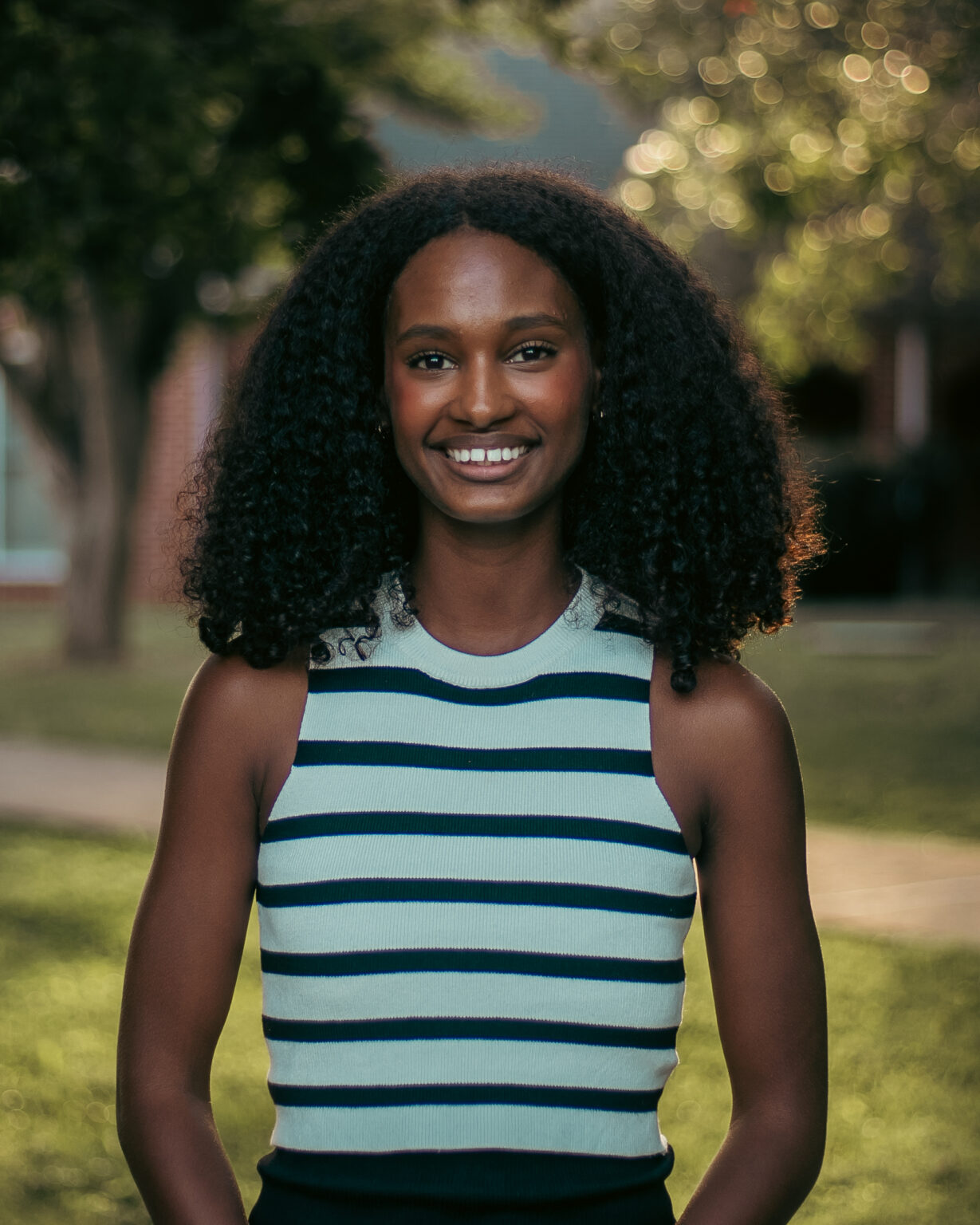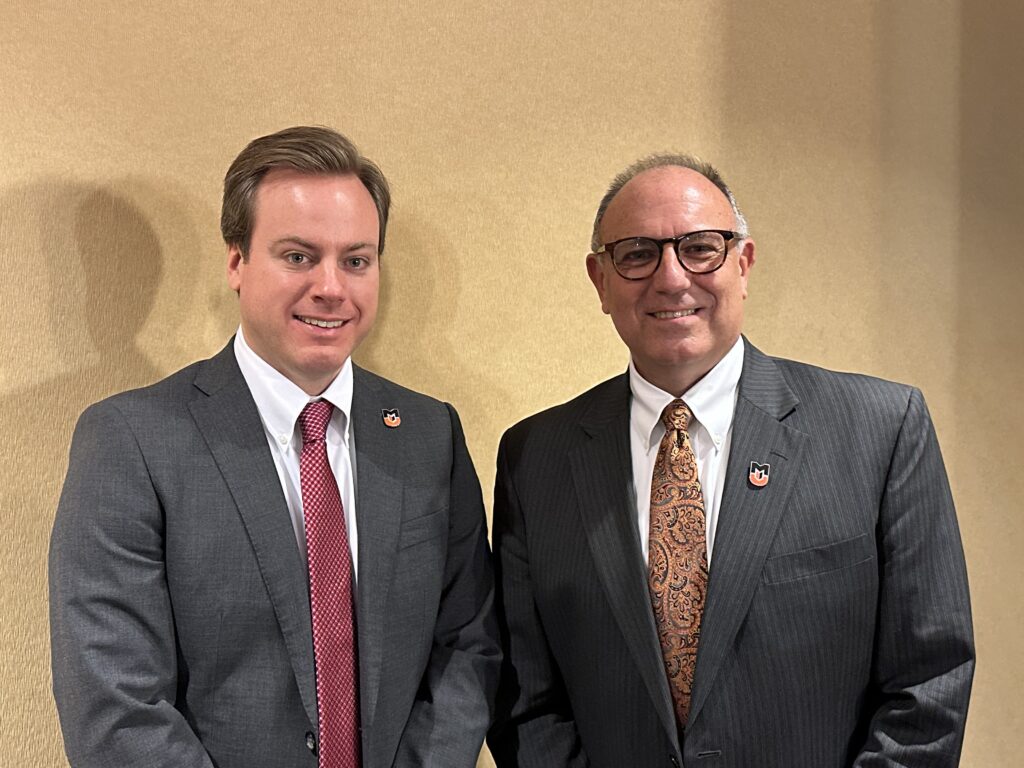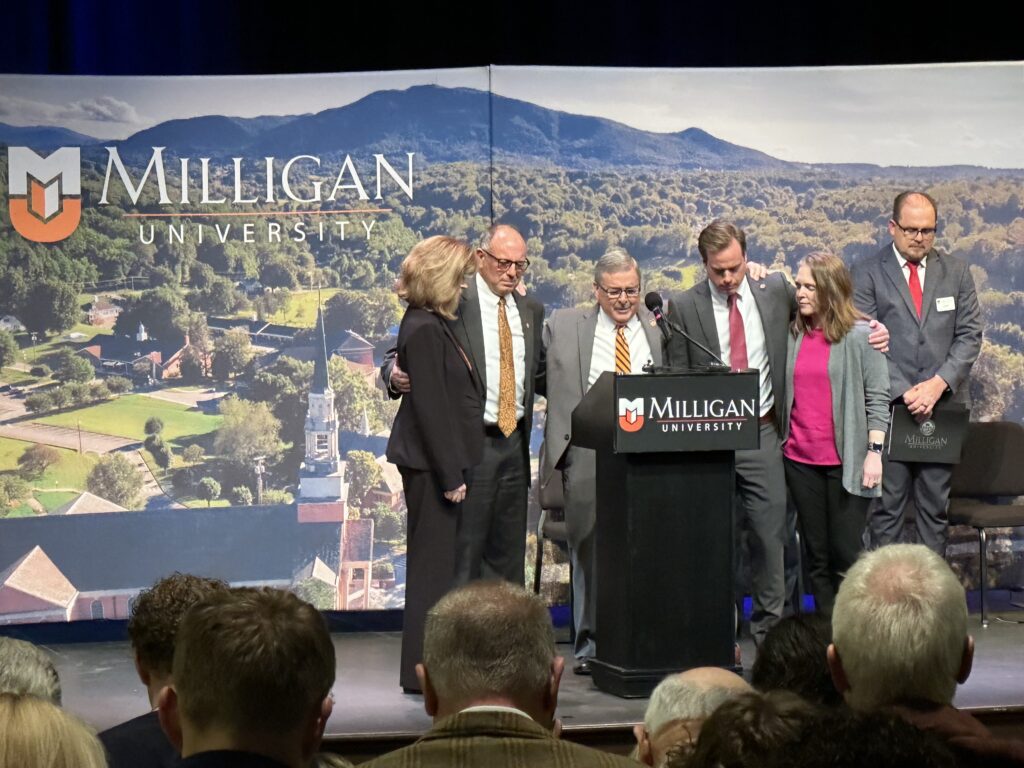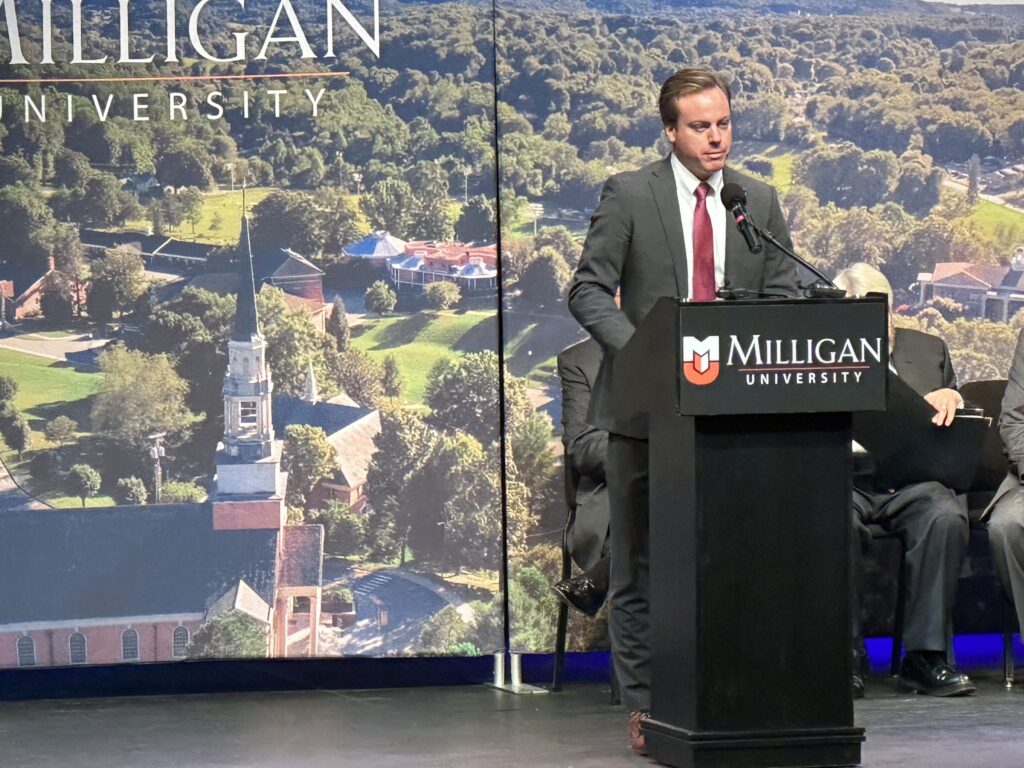On Jan. 9, Milligan University’s Board of Trustees announced Dr. Stephen Waers as the university’s 16th president. Shortly after, The Stampede sat down with Waers to learn more about him and his plans for Milligan’s future.
I chose Milligan because it is precisely the sort of place where professors pour into students’ life, and staff members and coaches help form students and help them understand what their calling is in the world.
Milligan’s 16th President Dr. Stephen Waers
What does change at Milligan look like for you?
One thing you can expect from me is the introduction of new technologies and modernization of some processes. However, I haven’t seen enough to know what and when that will be. I really want to avoid being presumptuous and think I’ve got everything figured out. In order for me to bring any change to Milligan’s campus, it is really important for me to share conversations and meals with students and faculty when I first arrive. Once I have a better feel for the place, then I’ll be in a better position to talk about the sorts of changes that might be in store.
How do you think your experience and background at Point University has helped prepare you for this role?
Point University and Milligan share some similarities and differences. One of the similarities is that a high percentage of our undergraduate students are student athletes. I’ve done a lot of work here to collaborate with our athletic director at Point. I also know that Milligan has a pretty good percentage of undergraduates who are athletes too. So, I’m very interested in continuing that collaborative relationship and helping build collaboration between faculty and athletics at Milligan.
This year, Milligan experienced a high enrollment number and encountered some difficulties in trying to accommodate students, especially regarding housing. Assuming Milligan continues to see higher enrollment numbers, how will you facilitate Milligan to be able to receive those high numbers of students?
I’ve already been in conversation with Dr. Greer about this and we both call this a “good problem.” Having a shortage of available beds is a problem, but it’s a great one to have when there are a lot of colleges that aren’t fortunate enough to have. We know that there are quick fixes to creating space for those students. However, we also know that it will take creative solutions in the long run.
I think Milligan needs to look at cost-effective ways that could solve the problem in the short term without wrapping the school up in debt or building more housing than needed in the long term. That’s kind of a non-answer answer, but I do think that solving the problem will require a good deal of creativity. I’m excited to be able to solve good problems like that because that means the university is helping students.
Why have you chosen Milligan?
After almost dropping out of Point University and considering Florida State for engineering, I decided to attend Emmanual Christian Seminary, where the professors opened their lives to me. It was there when I discovered that I wanted to become a professor so that I could do for other students what those professors had done for me. They helped me kind of find my calling and find my way in life.
During my time at Emmanuel, I developed deep relationships with my professors, and I knew that I wasn’t just a number in a system. Those same professors have come to be mentors for my wife and I. I chose Milligan because it is precisely the sort of place where professors pour into students’ life, and staff members and coaches help form students and help them understand what their calling is in the world.
What do you want to be remembered for at the end of your presidential term?
In my remarks at the announcement, I said that I wanted to be known for fidelity. This meant I want to help Milligan remain true to its mission and what it was founded for. I think if I came in as a sort of tech native millennial and said ‘I just want to be known for innovation— if that’s the thing I anchor my legacy to, there would be a good chance that Milligan could lose sight of who it is and has been. And so I truly want to help Milligan transform in new and faithful ways, but I want to pay careful attention to making sure Milligan also stays true to its mission and purpose.

About the author:
Rebekah McNerney is a senior at Milligan and serves as the editor in chief for The Stampede. She is from Mount Pleasant, Michigan, where she grew up with three sisters. Rebekah is also a part of student government and the Goah diversity scholars. She is double majoring in multimedia journalism and political science, and after graduation she hopes to secure a position as a journalist specializing in politics and government.



